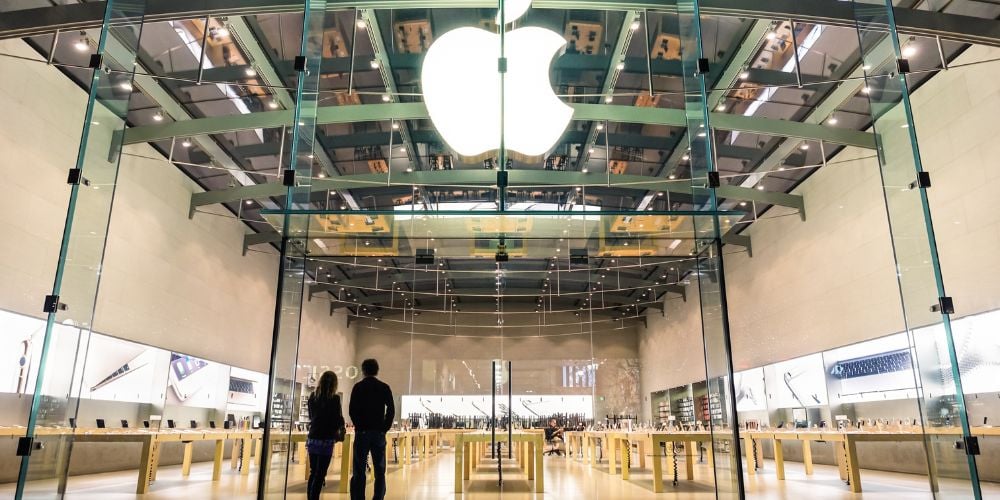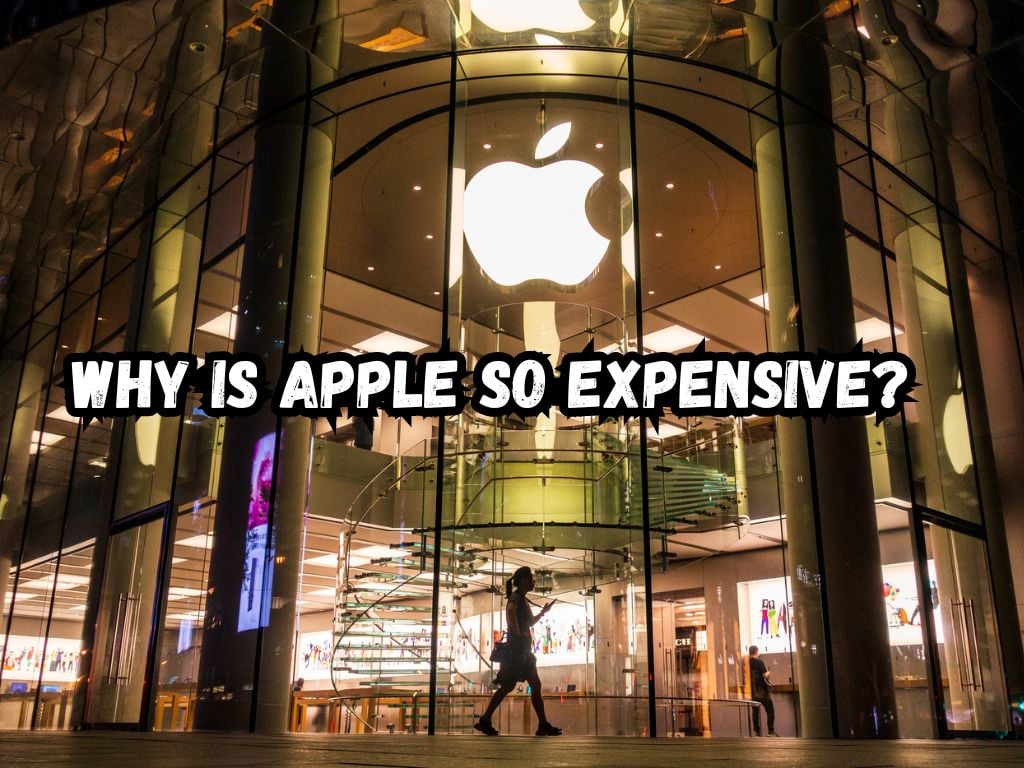Apple has become a household name when it comes to technology. From iPhones to MacBooks, Apple has a reputation for producing high-quality products that come at a premium price.
Many consumers wonder why Apple products are so expensive compared to its competitors’.
In this article, we will explore why Apple is so expensive, including factors like brand value, superior hardware and design, integration of software and hardware, premium customer service, manufacturing and supply chain costs, research and development investments, and more.
Why is Apple so Expensive?
Brand Value and Marketing Strategies
Apple is known for being a premium brand, and it’s able to charge a premium price due to its branding and marketing strategies.
Apple has built a loyal customer base by producing innovative and high-quality products that appeal to a specific audience.
The company has cultivated a cult-like following that eagerly anticipates each new product launch.
Additionally, Apple’s marketing campaigns are carefully crafted to create excitement and desire for their products, further reinforcing the perception of value.

Superior Hardware and Design
One of the factors that sets Apple apart from its competitors is its focus on hardware and design.
Apple products are known for their sleek and minimalist designs, which appeal to consumers who value aesthetics.
The company also uses high-quality materials and components, ensuring that their products are durable and long-lasting.
Furthermore, Apple invests heavily in research and development to stay at the forefront of technological advancements, offering cutting-edge products.
Integration of Software and Hardware
Apple is renowned for the seamless integration of its software and hardware. This integration provides a cohesive user experience across devices, allowing customers to easily transition between their iPhone, iPad, and MacBook.
The optimization between hardware and software ensures that Apple products perform at their best, offering reliability and efficiency.
Regular software updates and support further enhance the user experience, ultimately justifying the higher price tag.
Premium Customer Service
Apple prioritizes customer satisfaction by offering premium customer service. The company operates dedicated Apple stores and service centers where customers can receive personalized assistance.
The Genius Bar provides one-on-one support to address any issues or questions users may have.
Additionally, Apple offers extensive warranty and repair options, giving customers peace of mind when investing in their products.
Manufacturing and Supply Chain Costs
Ensuring Product Quality Control
Product quality control is a crucial aspect of Apple’s manufacturing process. The company conducts rigorous quality checks at various stages of production to ensure that each device meets its standards of excellence.
Unlike some competitors, Apple retains control over its manufacturing facilities, reducing the risk of quality issues that may arise from outsourcing.
However, this means higher manufacturing costs for Apple, which are reflected in the retail price.
Limited Production Capacity
Apple deliberately manages its production capacity to maintain exclusivity and drive demand.
The company has limited manufacturing agreements, which allows for control over the entire production process.
By manufacturing less, Apple creates a perception of scarcity, boosting the desirability of its products.
This strategy also enables Apple to carefully manage inventory and avoid excessive stock, which could lead to a decrease in the perceived value of their products.
Research and Development Investments
Continuous Innovation and Technological Advancements
A significant portion of Apple’s expenses goes toward research and development. Apple invests heavily in developing cutting-edge technologies, from hardware components to software features.
These ongoing investments are necessary to stay ahead of the competition and maintain the brand’s reputation for innovation.
Patents, acquisitions, and investments in new technologies further contribute to Apple’s high costs. In order to recoup these investments, Apple prices its products accordingly.
Environmental Responsibility
Apple has been committed to reducing its environmental impact, which has led to additional costs for the company.
The company now invests in renewable energy, environmentally friendly processes, and responsible sourcing for materials used in its products.
These environmental efforts have resonated with customers who also value sustainable practices.

Brand Image and Perceived Value
The Psychology of Pricing
Apple understands the psychology behind pricing and leverages it effectively. The company recognizes that consumers often link price with perceived value, associating higher prices with quality and exclusivity.
Apple’s premium pricing strategy helps establish itself as an aspirational brand that consumers aspire to own.
Moreover, by pricing its products higher, Apple creates a perception of exclusivity and luxury.
Product Differentiation and Exclusivity
Apple differentiates itself from competitors through its emphasis on innovation, design, and user experience.
By incorporating unique features and intricate design elements, Apple creates products that stand out in the market.
This differentiation allows Apple to position itself as a premium brand and charge premium prices.
The exclusivity associated with Apple products also appeals to affluent customer segments who desire status symbols.
Continued Customer Loyalty
Apple’s emphasis on exceptional customer service, product quality, and innovation has led to a loyal customer base.
Customers who have owned multiple Apple products often stick to the brand due to the seamless integration between Apple products and the user-friendly interface.
Therefore, Apple’s customer loyalty contributes to the brand’s value, allowing them to continue their premium pricing strategy.
Frequently Asked Questions
Why are Apple products more expensive than competitors?
Apple products are often more expensive due to a combination of factors. These include premium branding and marketing strategies, superior hardware and design, integration of software and hardware, premium customer service, manufacturing and supply chain costs, research and development investments, and the brand’s perceived value.
Are Apple products actually worth the higher price?
The value of Apple products extends beyond their hardware specifications. Apple’s focus on seamless integration between software and hardware, exceptional customer service, and constant innovation justify the higher price for many consumers. However, the value of a product is subjective and may vary depending on individual needs and preferences.
Does Apple overprice its products to make a profit?
Apple is a profit-oriented company and aims to generate revenue. Pricing strategies are determined based on factors such as production costs, research and development investments, market demand, and perceived value. While some argue that Apple’s prices are high, the brand’s success and continued growth indicate that the market supports their pricing strategy.
What are the alternatives to Apple products for cost-conscious consumers?
For consumers seeking more affordable alternatives to Apple products, there are several options available. Android-based smartphones and tablets, as well as Windows-based laptops, offer a range of features and price points to suit different budgets. It is important to consider individual needs and research different brands before making a purchase decision.
Does Apple ever lower its prices or offer discounts?
Apple generally maintains its pricing strategy without significant price reductions or discounts. However, the company occasionally offers promotional deals and discounts during certain periods, such as back-to-school seasons or holiday sales. These discounts are typically limited and may not apply to all products.
Conclusion
Apple’s premium pricing is a result of various factors working in synergy. The company’s focus on branding, superior hardware, software integration, customer service, and research and development investments contribute to the high prices.
Additionally, the brand’s perceived value and the psychology of pricing further justify the premium associated with Apple.
While Apple products may not be affordable for everyone, they continue to attract a wide range of loyal customers who are willing to pay a premium for the quality, innovation, and status that Apple represents.


 Tags:
Tags:










